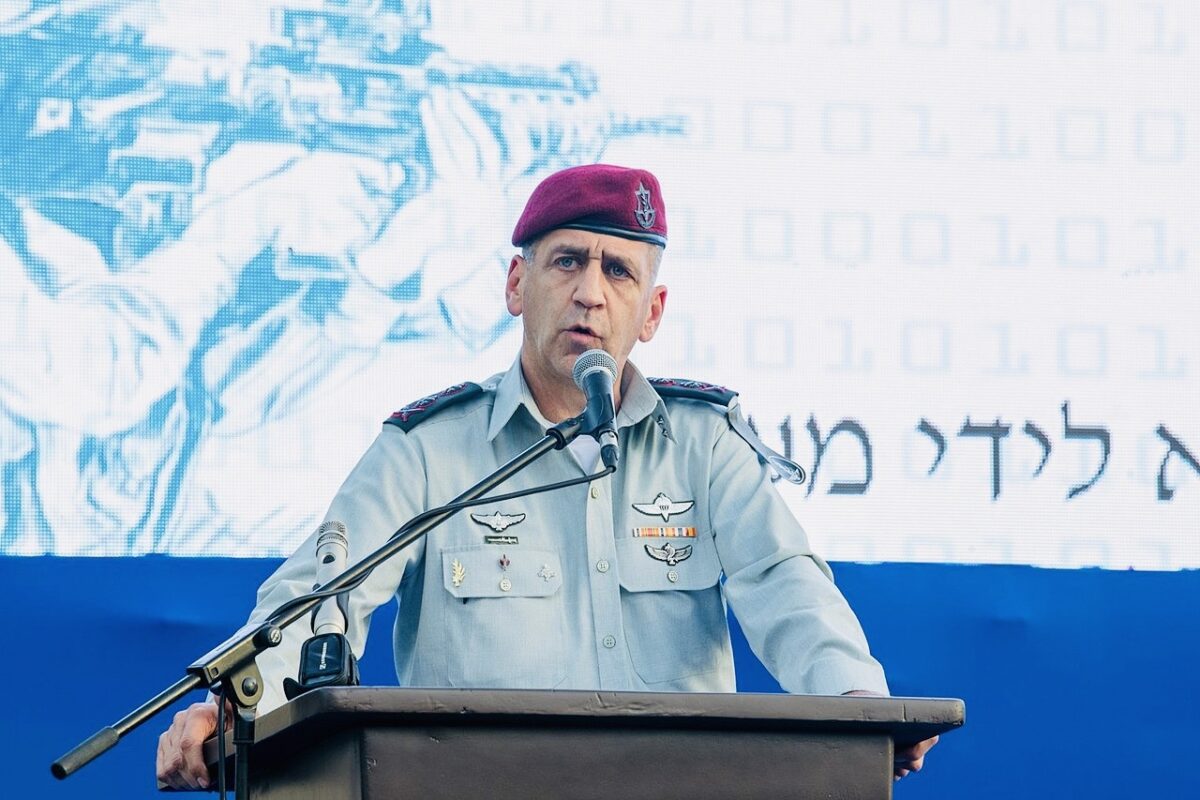Much to Israel’s consternation, international talks to revive the 2015 Iran nuclear agreement resumed in Vienna on November 29 after a five-month hiatus.
The accord, hailed by U.S. President Barack Obama as a landmark achievement but greeted by Israel with apprehension, disappointment and scorn, granted Iran relief from crippling economic sanctions. In exchange for this concession, Iran agreed to freeze its nuclear program for more than a decade.
Donald Trump, Obama’s successor, slammed the agreement as “the worst deal in history.” In May 2018, the United States unilaterally withdrew from the Joint Comprehensive Plan of Action (JCPOA), as it is formally known, and imposed still more economic sanctions on Iran.
Iran reacted to the pullout with alacrity. In short order, Iran repeatedly violated it — building advanced centrifuges, breaching uranium enrichment limits, and rebuffing attempts by the International Atomic Energy Agency to monitor its nuclear program. In another ominous violation, Iran enriched its stockpile of enriched uranium to 60 percent, just below bomb-grade quality.
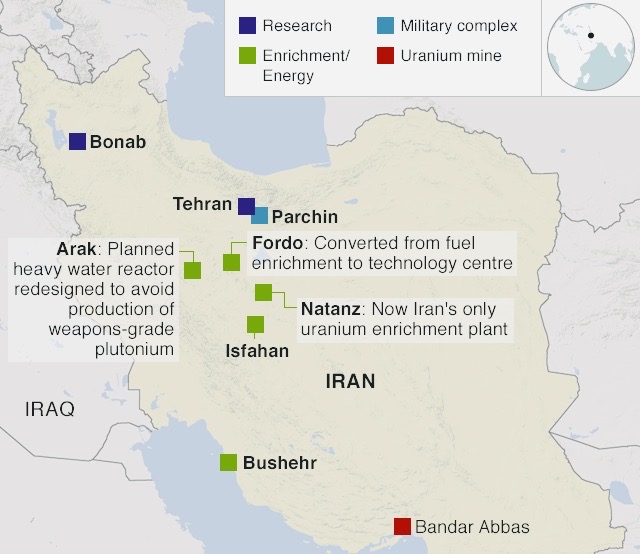
According to the director of Israeli military intelligence, General Aharon Haliva, Iran is enriching more nuclear material more quickly than ever before. One of his predecessors, Amos Yadlin, recently predicted that Iran’s “breakout” time to a nuclear bomb would be only two months under a renewed JCPOA.
Yesterday, Israel claimed that Iran is preparing to enrich uranium to weapons-grade 90 percent purity so to increase its leverage at the seventh round of the Vienna talks.
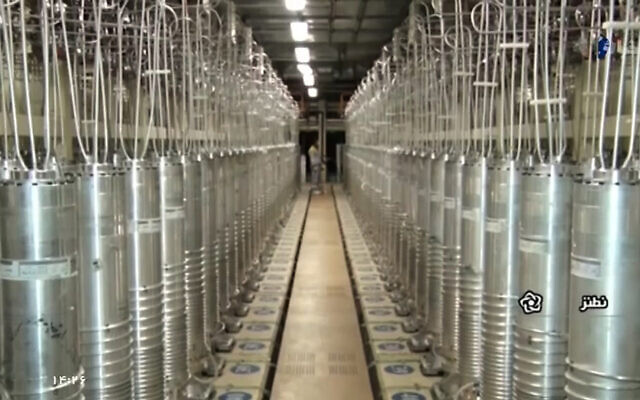
Iran is in direct negotiations with five of the signatories — Russia, China, France, Britain and Germany — but, due to highly charged political reasons, is negotiating indirectly with the United States.
From the outset, Israel has blasted the JCPOA, claiming it would not prevent Iran, its arch enemy, from acquiring a nuclear capability. More to the point, Israel has attempted to undermine Iran’s nuclear program by means of sabotage and assassinations.
Israel was pleased by Trump’s hasty decision to withdraw from the JCPOA, but is skeptical of his successor’s approach to Iran. Joe Biden’s strategy is to reenter the agreement, persuade Iran to comply with all its provisions, and build a “longer and stronger” accord that would make it virtually impossible for Iran to attain nuclear status.
Alongside these objectives, the Biden administration laid out a plan to constrain Iran’s destabilizing regional activities (its alliances with Syria, Hezbollah and Hamas, three of Israel’s greatest enemies), rein in its support of terrorism, and reduce its ballistic missile arsenal, which is closely aligned with its nuclear program.
In the weeks leading up to the resumption of negotiations, U.S. Secretary of State Antony Blinken said the United States is committed to “the proposition that Iran cannot be allowed to acquire a nuclear weapon.”
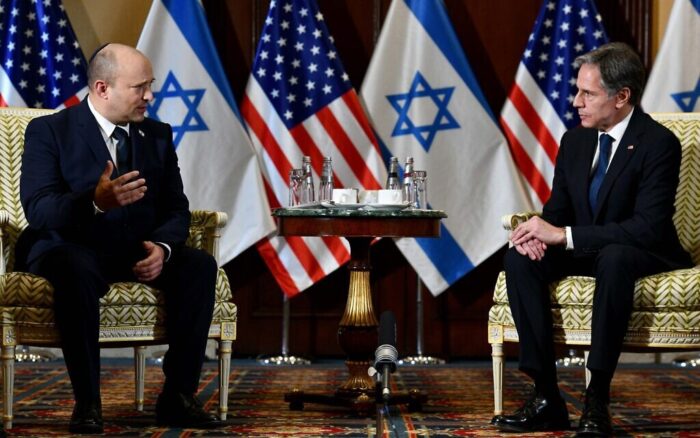
Warning that “time is running short” for Iran to fully comply with the JCPOA, he called diplomacy the best way to bring Iran into compliance with it. If necessary, he said vaguely, the Biden administration was ready “to turn to other options” if Iran did not change course.
Biden’s national security advisor, Jake Sullivan, delivered the same message, saying the United States prefers diplomacy over military action at a time when Washington is preoccupied with the Covid-19 pandemic, internal affairs and tensions with China and Russia.
It is doubtful whether Iran will abide by the U.S. conditions. On November 15, Israeli Foreign Minister Yair Lapid accentuated this point when he told U.S. special envoy Rob Malley that Iran has no intention of returning to the original deal.

This may well be true.
Two months before negotiators returned to Vienna, Iran’s foreign minister, Hossain Amir-Abdollahian, an appointee of newly elected President Ebrahim Raisi, categorically rejected the notion of a “longer and stronger” agreement.
Yesterday, Iran said it was “looking forward to fruitful talks” in the hope of reaching an agreement with the major powers. “If the other side shows the same willingness, we will be on the right track to reach an agreement,” Iranian Foreign Ministry spokesman Said Khatibzadeh said.
But in a forceful warning that may doom the JCPOA to oblivion, Amir-Abdollahian said that Iran would not return to it unless the United States lifts all its sanctions.
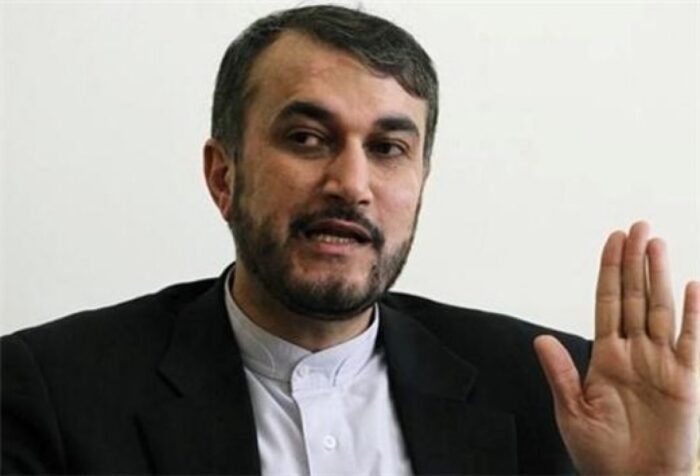
In Israel’s view, they should not be lifted until it is determined what Iran is willing to give in return.
Israel, a nuclear power itself, has hinted it is prepared to strike Iranian nuclear sites to keep Iran out of the atomic club. As Lapid said euphemistically, “Other options are going to be on the table if diplomacy fails.”
Iran, in a letter to the United Nations Security Council recently, cautioned Israel to abandon the military option. “We warn the Zionist regime against any miscalculation or military adventure targeting Iran,” Iran’s ambassador Majid Takht Ravanchi wrote.
In a tweet in Farsi, English, Hebrew and Arabic, Ali Shamkhani, the secretary of the Supreme National Security Council of Iran, underscored that point by warning that Iran’s military response to an Israeli attack would be devastating, causing trillions of dollars worth of destruction.
Despite these warnings, Israel has been laying the groundwork for a bombing campaign of Iranian nuclear sites.
On October 18, Israel announced that $1.5 billion has been allocated in preparation for it. This followed an announcement by the Israeli chief of staff, General Aviv Kohavi, that he had instructed the armed forces to draw up fresh attack plans.
Israel has dealt with this problem before. In 1981, the Israeli Air Force bombed Iraq’s nuclear reactor near Baghdad. And in 2007, Israel destroyed Syria’s nuclear reactor. A strike on Iran’s nuclear infrastructure would be infinitely more complicated.
Israel was on the cusp of attacking Iranian nuclear facilities in 2011 and 2012, but the then Israeli prime minister, Benjamin Netanyahu, dropped the plan due to opposition from cabinet members, the head of the Mossad and the United States.
Toward the close of October, Israeli Prime Minister Naftali Bennett declared he was losing patience with Iran. “Iran’s nuclear program has hit a watershed moment, and so has our tolerance” he declared. “Words do not stop centrifuges from spinning … We will not allow Iran to acquire a nuclear weapon.”
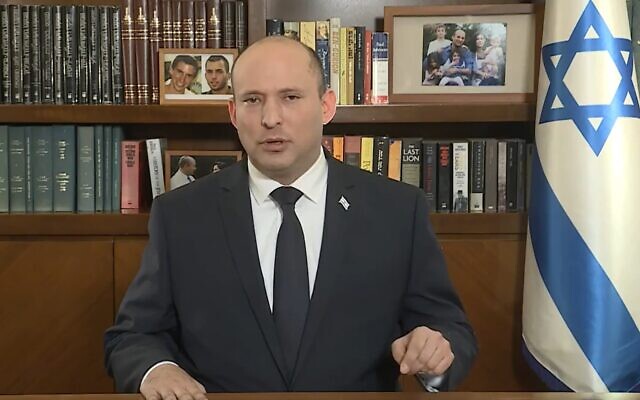
Subsequently, Bennett said that Iran’s nuclear program has reached a “very advanced stage,” and that Israel is “not bound by the JCPOA.
On November 9, Kohavi said the army is “accelerating operational planning and preparing to deal with Iran and the military nuclear threat.”
Around the same time, Defence Minister Benny Gantz said that, if necessary, Israel would launch attacks that “haven’t been seen in the past.” On November 21, Gantz announced his support for a “broader, stronger and longer” agreement in which Iran agrees to dismantle its nuclear capabilities and submit to third party inspections.
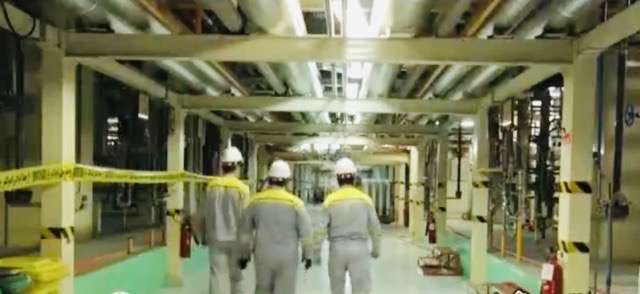
In a radio interview on November 21, Amir Eshel — the director general of the Ministry of Defence and the former commander of the air force — said that Israel is ready to bomb and cause heavy damage to Iran’s nuclear installations.
On November 23, Israeli Finance Minister Avigdor Liberman expressed skepticism that a new agreement would keep Iran from acquiring a nuclear weapon capability and warned that Israel may have no alternative but to bomb Iran’s nuclear sites.
Four days ago, Yossi Cohen, the former director of the Mossad, urged Israel to seriously consider a strike on these facilities, saying that a nuclear-armed Iran “endangers our existence.”
Israel’s rhetoric notwithstanding, it is uncertain whether the Israeli government will go out on a limb and embrace the military option. Israel may be waging psychological warfare against Iran in the hope of pressuring it to cave in to Western demands.
The Israeli government is acutely aware that Iran’s reaction to an attack would be ferocious, resulting in the widespread damage of Israeli cities and the deaths of hundreds or thousands of Israelis.
In a undeclared war with Iran, the Israeli Air Force is already bombing Iranian military bases in Syria and striking Iranian ships on the high seas, while Israeli computer hackers are engaged in a cyberwar with their Iranian counterparts.
But it is questionable whether Israel will ratchet up its air campaign by extending it to Iran. This would be an enormous risk for a country so susceptible to casualties.
Israel may be better off coexisting with an improved version of the JCPOA, if this is still attainable.
